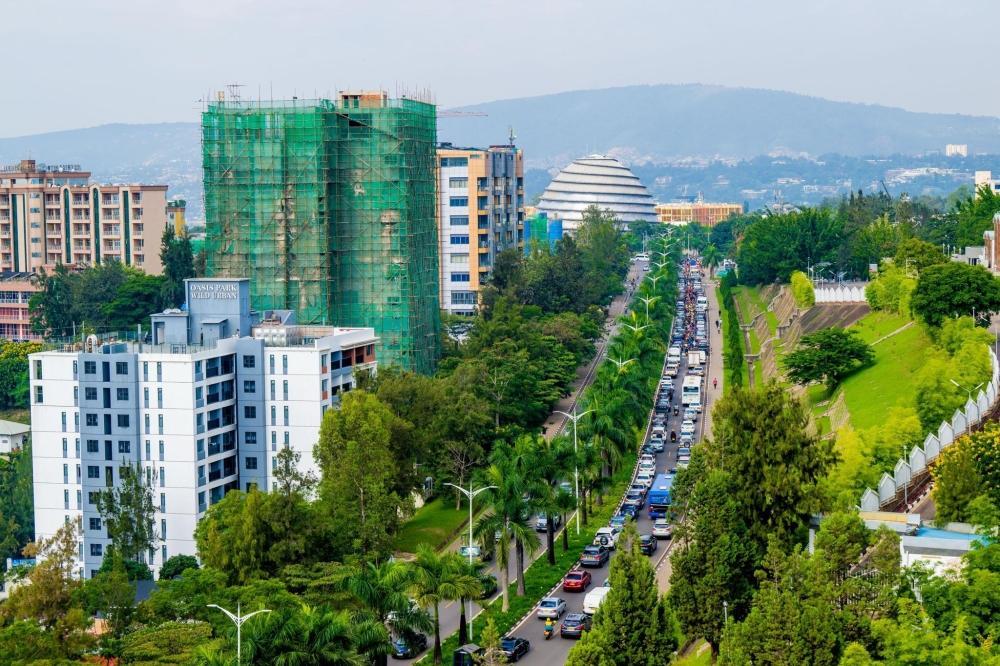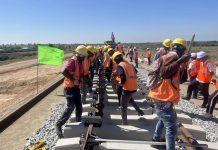Patient Kwizera
Africa-Press – Rwanda. The global chorus of Western democracy promoters assumes that liberal democracy is the universal standard for freedom and progress. But can liberal democracy truly withstand the challenge posed by those who reject its dogmas in favour of systems rooted in their own histories and realities? The answer lies in confronting the contradictions within Western liberalism itself and recognising that Rwanda’s model deserves respect, not condescension.
At the heart of this debate lies a paradox that liberal crusaders rarely confront. They claim to cherish democracy, yet recoil when its outcomes defy their expectations, as seen in Hungary and Poland, and more recently, in the US. True belief in democracy means accepting its verdicts, even when they are unwelcome. In Rwanda’s case, the discomfort of liberal advocates is most evident when they criticise the people’s decision, which was made during the 1998–99 Urugwiro meetings, to criminalise ethnic-based politics and genocide denial. Their reaction lays bare the real question: can they truly grasp a democracy forged in the aftermath of a nation’s tragedy?
Throughout history, elite-led projects dressed in the language of democracy have always been more fragile than their admirers admit. This is as true for today’s liberal project as it was for ancient Athens. The Greek city-state, often celebrated as democracy’s birthplace, eventually descended into chaos, factionalism, and defeat in the Peloponnesian War. Plato’s critique of democracy was rooted in lived experience. He watched populism destroy the city he loved and execute Socrates for daring to rise above the mob. Modern Rwanda’s consensual democracy is built to avoid that fate. It is a system designed to unite people, not to indulge elites or factional whims.
Liberal advocates, in their misplaced fervour, argue that their aspirations are universal, and that all societies must adopt their prescriptions, even the worst forms of multiparty systems that lead to ethnic-based pluralism and unrestrained speech, including speech that promotes hatred and denies genocide. Yet, in post-war Germany, their brand of democracy banned extremist parties to prevent a Nazi resurgence. Rwanda, too, draws a red line against political actors who trade in ethnic populism. Rwandans do not reject democracy; rather, they reject the callous and careless pursuit of liberal advocates who treat their history so casually. They demand a democracy rooted in historical memory, not a Western colonial hangover. Liberal crusaders forget this when they demand that Rwanda legalise parties whose only real ideology is divisionism. But most Rwandans understand that democracy must mean safeguarding the national community from the very forces that once destroyed it. So, can liberal crusaders withstand a democracy that prioritises national survival over imported abstractions?
Consider liberalism’s practical flaws, visible from Washington to Westminster. Short electoral cycles breed leaders more concerned with the next vote than with the next generation. In Rwanda, we view democracy differently: not as a pendulum swinging from faction to faction, but as a long-term project of nation-building. Critics call this authoritarianism; we call it responsibility born of history. And here, too, we ask: What appeal does liberalism hold when measured against a democracy that defines success not through electoral theatre, but through lasting peace and prosperity?
Even the central liberal myth — that democracy uniquely channels the popular will — is simplistic. All governments, democratic or not, endure only with broad societal acceptance. What matters is not whether people vote every five years, but whether governance delivers security, dignity, and hope. Rwanda’s post-genocide transformation is a case in point: millions lifted out of poverty, life expectancy doubled, and a generation raised free from hate propaganda. Yet liberal crusaders dismiss these gains because the system they loathe conflicts with their sacred dogma, even while delivering democratic outcomes. How does their liberal project succeed in a country where outcomes matter more than ritual process?
Global comparisons reveal that Rwanda is not alone. Singapore forged its prosperity through what Lee Kuan Yew termed “guided democracy,” resisting Western pressure for liberal pluralism. China has prioritised stability and growth over electoral competition. Meanwhile, the Western democratic project is showing cracks: populism, polarisation, and short-termism. And so, the question becomes more pointed: can liberal advocates prevail when their model is faltering at home and being resisted abroad, or will their project die a quiet death?
At its core, the Western critique of Rwanda is not about democracy versus dictatorship; it is about whose democracy, defined by whom, and for whose history. Rwandans do not claim perfection, but they insist that democracy must heal, not reopen wounds. Must unify, not divide.
We believe deeply in democracy, but in our democracy, forged in memory and shaped by survival. This is our challenge: can liberal crusaders overcome a model they neither shaped, nor control, nor truly understand?
Western democracy promoters face a choice: recognise the legitimacy of democratic diversity or cling to a fading universalism. Rwanda’s story forces that choice upon them. And so, in the final reckoning, the question remains: can liberal crusaders survive the defenders of Rwandan democracy? Only if they remember democracy’s greatest lesson — that it belongs, first, to those who live with, and remember, its cost.
Source: The New Times
For More News And Analysis About Rwanda Follow Africa-Press






